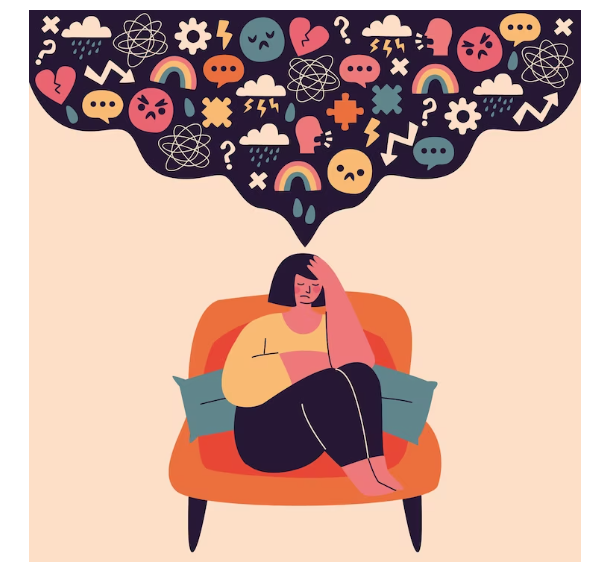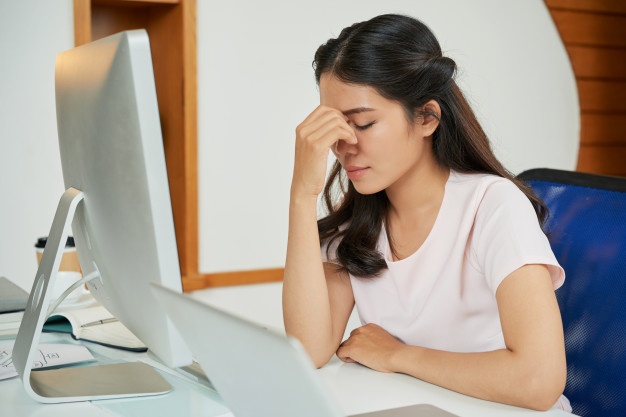If you’re struggling with anxiety, you’re not alone. Anxiety is a common mental health condition that can interfere with daily life. But there are many strategies and techniques that can help manage anxiety, including therapy, medication, self-care practices, and lifestyle changes.
In this comprehensive guide, we’ll explore the causes and symptoms of anxiety, as well as effective management strategies to help you reduce symptoms and improve your overall well-being.
From relaxation techniques and time management to social support and stress management, we’ll cover everything you need to know to take control of your anxiety and find relief.
What is Anxiety
Anxiety is a natural response to stress, danger, or unfamiliar situations. It’s a normal part of the human experience and can even be helpful in some situations, such as when it helps us avoid danger or perform well under pressure.
However, when anxiety becomes excessive or persistent, it can interfere with daily life and be a sign of an anxiety disorder.
Anxiety disorders are a group of mental health conditions characterized by excessive, irrational, persistent worry /fear, and depression.
Some common types of anxiety disorders include generalized anxiety disorder, social anxiety disorder, panic disorder, and phobias.
Symptoms Of Anxiety

The symptoms of anxiety can vary from person to person and depend on the type and severity of the anxiety disorder. Some common symptoms of anxiety include:
- Feeling nervous or restless
- Having a sense of impending danger, panic, or doom
- Rapid heartbeat or palpitations
- Sweating or trembling
- Hyperventilating or feeling short of breath
- Feeling weak or tired
- Difficulty concentrating or sleeping
- Avoiding certain situations or activities
If you’re experiencing any of these symptoms, it’s important to talk to a healthcare provider or mental health professional to determine if you have an anxiety disorder.
Causes Of Anxiety
The exact causes of anxiety are not fully understood, but several factors may contribute to its development. These include:
- Genetics: Anxiety disorders tend to run in families, suggesting that there may be a genetic component.
- Brain chemistry: Imbalances in certain chemicals in the brain, such as serotonin and dopamine, may contribute to anxiety.
- Trauma: Experiencing a traumatic event, such as abuse or a natural disaster, can increase the risk of developing an anxiety disorder.
- Stress: Chronic or excessive stress can contribute to the development of anxiety.
- Substance abuse: Using drugs or alcohol can increase the risk of developing an anxiety disorder.
Treatment of Anxiety
There are several treatments for anxiety, including:
- Therapy: Cognitive-behavioral therapy (CBT) is a type of therapy that is often used to treat anxiety disorders. CBT helps people identify and change negative thought patterns and behaviors that contribute to anxiety.
- Medication: Antidepressants, anti-anxiety medications, and beta-blockers are some of the medications that may be used to treat anxiety disorders.
- Lifestyle changes: Making changes to your diet, exercise routine, and sleep habits can help reduce anxiety symptoms. For example, eating a balanced diet, getting regular exercise, and practicing good sleep hygiene can all help reduce anxiety symptoms.
- Self-care practices: Activities like yoga, meditation, deep breathing, and progressive muscle relaxation can help reduce anxiety symptoms and promote relaxation.
- Alternative therapies: Some people find alternative therapies like acupuncture, massage, and herbal supplements helpful in managing anxiety symptoms.
Self-Care Practices for Anxiety
In addition to seeking professional help for anxiety, there are several self-care practices that can help manage anxiety symptoms. Here are a few:
- Exercise: Regular exercise can help reduce anxiety symptoms by increasing endorphins, improving sleep, and reducing stress.
- Mindfulness meditation: Mindfulness meditation involves paying attention to the present moment without judgment. It can help reduce anxiety symptoms by promoting relaxation and reduction.
- Avoiding triggers: Identifying and avoiding triggers that contribute to anxiety can be helpful in managing anxiety symptoms. Triggers can include certain foods, situations, or people.
- Journaling: Writing down your thoughts and feelings can help you identify patterns and triggers that contribute to anxiety. It can also help you process your emotions and develop coping strategies.
- Social support: Connecting with friends and family can help reduce anxiety symptoms by providing a sense of social support and belonging.
- Time management: Poor time management can contribute to anxiety by causing stress and overwhelm. Developing good time management skills, such as prioritizing tasks and delegating responsibilities, can help reduce anxiety symptoms.
- Relaxation techniques: Practicing relaxation techniques, such as deep breathing, progressive muscle relaxation, or visualization, can help reduce anxiety symptoms and promote relaxation.
It’s important to note that while self-care practices can be helpful in managing anxiety symptoms, they are not a substitute for professional help. If you are experiencing severe or persistent anxiety symptoms, it’s important to seek help from a healthcare provider or mental health professional.
In addition to self-care practices, there are several lifestyle changes that can help reduce anxiety symptoms. These include:
- Getting enough sleep: Poor sleep can contribute to anxiety by increasing stress hormones and reducing the body’s ability to cope with stress. Getting enough sleep, ideally, 7-9 hours per night, can help reduce anxiety symptoms.
- Eating a balanced diet: A diet that is high in processed foods, sugar, and caffeine can contribute to anxiety by causing spikes in blood sugar and increasing stress hormones. Eating a balanced diet that includes whole foods, lean protein, and healthy fats can help reduce anxiety symptoms.
- Limiting caffeine and alcohol: Caffeine and alcohol can both contribute to anxiety symptoms. Limiting or avoiding these substances can help reduce anxiety symptoms.
- Getting regular exercise: Regular exercise can help reduce anxiety symptoms by increasing endorphins, improving sleep, and reducing stress.
- Practicing stress management: Developing stress management skills, such as deep breathing, mindfulness meditation, or yoga, can help reduce anxiety symptoms and promote relaxation.
Conclusion
In summary, anxiety is a common mental health condition that can interfere with daily life. However, there are many strategies and techniques that can help manage anxiety, including therapy, medication, self-care practices, and lifestyle changes.
By taking steps to manage anxiety, it’s possible to improve overall well-being and quality of life.
